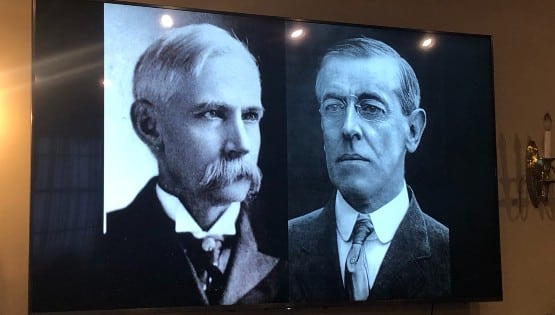
This audit and update was conducted pursuant to Virginia State Code § 18.2-308.014, which requires, in part, that “The Superintendent of State Police shall, in consultation with the Office of the Attorney General determine whether states meet the requirements and qualifications” for recognition of their concealed handgun permits.
In order to qualify for recognition of a permit, also known as “reciprocity,” the out-of-state issuing authority must provide “the means for instantaneous verification of the validity of all such permits or licenses issued within that state, accessible 24 hours a day,” and “the requirements and qualifications of that state’s law” must be “adequate to prevent possession of a permit or license by persons who would be denied a permit in the Commonwealth under this article.”
After months of research and evaluation, including extensive outreach to the states whose permits Virginia currently recognizes, Virginia is revoking concealed handgun permit recognition with 25 states effective February 1, 2016 because their laws are not sufficient to prevent someone who is disqualified under Virginia law from receiving a concealed handgun permit. These states therefore do not meet Virginia’s standards for issuance of a concealed handgun permit or for recognition of such permits.
This update does not affect which Virginia residents or nonresidents are qualified to receive a Virginia concealed handgun permit, nor does it affect the validity of any permits that have been issued by Virginia.
Virginia’s concealed handgun permit law includes a number of disqualifiers and safeguards designed to prevent potentially dangerous or irresponsible individuals from being able to lawfully conceal handguns, such as:
An individual who has been ordered by a court to receive outpatient mental health treatment, who has received inpatient mental health or substance abuse treatment, or who has been adjudicated legally incompetent, mentally incapacitated, or not guilty by reason of insanity.
- An individual who is subject to a restraining order, or to a protective order
- An individual who has been convicted of stalking or has pending stalking charges
- An individual who has been convicted of any assault, assault and battery, sexual battery, discharging of a firearm or brandishing of a firearm within the three-year period immediately preceding the application, or has pending charges for any of the above
- An individual who has been convicted of a felony or has felony charges pending
- An individual who has been convicted of two or more misdemeanors within the five-year period immediately preceding the application
- An individual who is addicted to, or is an unlawful user or distributor of, marijuana, synthetic cannabinoids, or any controlled substance.
- An individual who has been convicted of driving under the influence within the three years prior to the application
- An individual who the court finds, by a preponderance of the evidence, based on specific acts by the applicant, is likely to use a weapon unlawfully or negligently to endanger others
- An individual whose juvenile adjudications would have constituted a felony conviction if committed by an adult
- An alien other than an alien lawfully admitted for permanent residence
- An individual who is a fugitive from justice
- An individual who has been discharged from the armed forces of the United States under dishonorable conditions
Because the following 25 states lacked adequate disqualifiers to deny a permit to someone who would be barred from obtaining a permit in Virginia, the Virginia State Police, on the advice of the Attorney General, has begun notifying the following states that their concealed handgun permits will no longer be recognized by the Commonwealth:
- Alaska
- Arizona
- Arkansas
- Delaware #
- Florida *
- Idaho
- Indiana
- Kansas
- Kentucky
- Louisiana *
- Minnesota #
- Mississippi
- Montana
- Nebraska
- New Mexico
- North Dakota *
- North Carolina
- Ohio
- Pennsylvania *
- South Carolina *
- South Dakota
- Tennessee
- Washington #
- Wisconsin #
- Wyoming *
* indicates states that will no longer recognize Virginia concealed handgun permits because of laws in those states that require mutual recognition of permits
# indicates states that do not currently recognize a Virginia concealed handgun permit
Concealed handgun permits from Michigan, Oklahoma, Texas, Utah, and West Virginia will continue to be recognized, as their process for issuing concealed handgun permits is adequate to prevent someone who would be denied a permit in Virginia from obtaining one.
Speaking about this audit and update, Attorney General Herring said:
“Virginia, and nearly every other state in the country, have recognized that carrying a concealed handgun is a significant responsibility that should be extended only to those who have gone through a process to prove a level of competency and responsibility.
“The standards for proving competency and responsibility are up to each state, and the General Assembly has established Virginia’s standards for whom it considers capable of safely carrying a concealed handgun. Those standards should be applied evenly, consistently, and fairly to anyone who wants to lawfully conceal a handgun in Virginia.
“Under state law, the Virginia State Police can agree to recognize permits issued in another state if that state’s laws, disqualifiers, and safeguards are adequate to prevent possession of a permit by persons who would be denied a permit in the Commonwealth. For much of the last year, my team and I have worked with the Virginia State Police to conduct an audit and update of the states whose permits are recognized in Virginia. This has been a deliberate, thorough, professional review of the states which supposedly meet or exceed Virginia’s standards.
“To ensure Virginia’s law and safety standards for concealed handgun permits are applied evenly, consistently, and fairly, I have recommended the State Police terminate the reciprocity agreements with 25 states whose laws are not adequate to prevent issuance of a concealed handgun permit to individuals that Virginia would disqualify. The State Police has accepted that recommendation and has begun sending letters to the 25 states informing them that as of February 1, their permits will no longer be recognized by Virginia.
“To me, this is a commonsense step that can help make Virginians and our law enforcement officers safer by ensuring that our concealed carry laws and safety standards apply to everyone in Virginia, whether they are a resident or a visitor. Strong, consistent enforcement of Virginia’s laws and safety standards can prevent disqualified people who may be dangerous or irresponsible from utilizing a concealed handgun permit, and it’s what the law requires.”
“Our General Assembly has already identified who can and cannot conceal their handguns in Virginia. Those standards should apply to everyone in Virginia equally, at all times. They should not be undermined by wrongly recognizing permits from other states with more permissive standards.”
Virginia Secretary of Public Safety and Homeland Security Brian Moran added:
“The Virginia legislature has carefully crafted our concealed weapon law to ensure public safety. I am pleased the Attorney General has reviewed this statute as the legislature dictates.”
All concealed handgun permit holders are encouraged to review the applicable laws of Virginia and states they may visit to determine whether and how they can legally carry a concealed handgun.










